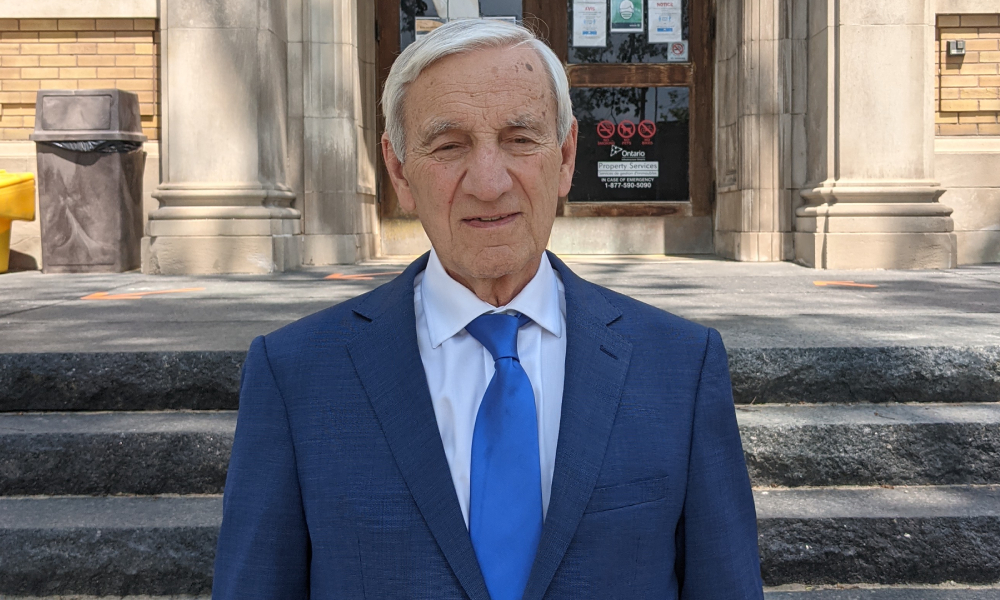
Hopefully ruling serves to end debate on the extension of s. 48(1) of Highway Traffic Act: lawyer

The Ontario Court of Appeal was recently divided over whether police, after deciding to make a traffic stop for a sobriety check on a public street, are still authorized to do so once the driver turns into a private driveway.
In R. v. McColman, 2021 ONCA 382, a man was arrested and later convicted of impaired operation of a motor vehicle, after the police assessed and arrested him after he had parked in his parent’s driveway. Justices Kathryn Feldman, Michael Tulloch and William Hourigan addressed whether the police’s actions were authorized under the Highway Traffic Act (HTA) and common law, and whether such a stop infringes s. 9 of the Charter. The Crown had brought the appeal, after the Superior Court quashed the convictions, finding the stop was an arbitrary detention.
Donald Orazietti, who acted for Walker McColman in the appeal, says he hopes the decision serves to end the debate on extending s. 48(1) of the HTA, which he calls the “the creeping of unauthorized police authority onto private property.”
“It clearly sets out the limits of police authority, and that police are not authorized by law to enter private property, absent reasonable suspicion or probable cause,” says Orazietti, who practises in Sault Ste Marie, Ont. “That is the important takeaway of this case.”
The incident took place in March 2016 in Thessalon First Nation. The police spotted McColman exiting a parking lot in a utility terrain vehicle and decided to conduct a sobriety check. They followed him for 200 metres down a public road, where McColman turned onto the driveway at his parents’ house. The police turned into the driveway, activated their lights and left their vehicle to speak with him. McColman was already out of the UTV, and at this point the officers said they did not have a reasonable suspicion that he was impaired. One officer told the court they were exercising their power to do random sobriety checks, pursuant to s. 48(1) of the HTA.
As the conversation began, it was immediately apparent McColman was drunk and when asked, he admitted to drinking around ten beers, said police. He was arrested and charged.
The trial judge dismissed McColman’s Charter application, finding that because the police had “formed the intention to enact the stop” while he was still driving on a public road, they retained the authority to make the stop under the HTA even after he was on private property. Then on appeal, Superior Court Justice Edward Gareau ruled that, once on private property, the police needed reasonable and probable grounds. McColman was no longer a “driver’ within the meaning of the HTA, said Justice Gareau, who overturned the conviction and entered an acquittal.
Writing the majority opinion, Justice Tulloch began by determining the police did not have statutory authority, under s. 48(1) of the HTA to affect the stop. When he was engaged, McColman was not a “driver” on a “highway” for the purposes of the Act. Justices Tulloch and Feldman rejected the Crown’s argument that the police “crystallized the intention to stop the respondent” while he was still on a highway and therefore still a “driver” under the Act.
“The issue is whether the police were acting pursuant to lawful authority at the moment when they conducted the stop,” said the decision.
Under the ancillary powers doctrine, police actions that interfere with individual liberty are acceptable under the common law if “ancillary to the pursuit of recognized police duties” when the action is “reasonably necessary for the fulfilment of that duty,” said the decision. In this set of circumstances, Tulloch and Feldman found the expanded police powers proposed by the Crown were not reasonably necessary.
Because the stop was unlawful, Tulloch and Feldman found it a s. 9 Charter breach and that the evidence should be excluded under s. 24(2).
In his dissent, Justice Hourigan said the case at bar was an “egregious example of impaired driving.” The majority reasons would establish that a drunk driver being followed by police would simply need to pull into any nearby driveway to achieve “legal sanctuary,” said Hourigan.
The Court of Appeal for Saskatchewan’s ruling in R. v. Anderson, 2014 SKCA 32, which the majority had found distinguishable, took a “purposive and common-sense approach,” and furthered the public safety purposes of the relevant legislation, said Hourigan. He also disagreed with the majority’s finding on the ancillary powers doctrine.
“As the Supreme Court has stated in the context of legislation enacted to combat impaired driving, the common law should be used to provide sufficient flexibility in an enforcement scheme to ensure that it is effective,” said Hourigan.
In its determination on whether the evidence should be excluded under s. 24(2) of the Charter, the majority opinion gave only a “cursory” application of the mandatory test in R. v. Grant, 2009 SCC 32, said Hourigan. Section 24(2) seeks to “preserve the integrity of the justice system in a manner that is reflective of societal values.” The Grant test requires “careful consideration” of whether inclusion of the impugned evidence will harm the “overall repute of the justice system.” A proper application of Grant would have determined the evidence should not have been excluded in this case, he said.
“It is unfortunate that some take a purely result-oriented approach to this case, says Orazietti. “‘McColman was over the legal limit, so why not convict him?’”
“In my view, that approach is wrong because in our law the means of obtaining evidence is just as important as the evidence itself. We don’t allow confessions into evidence if the accused has been coerced. We don’t allow police to wiretap indiscriminately. The police are held to standards of fundamental justice or due process.”